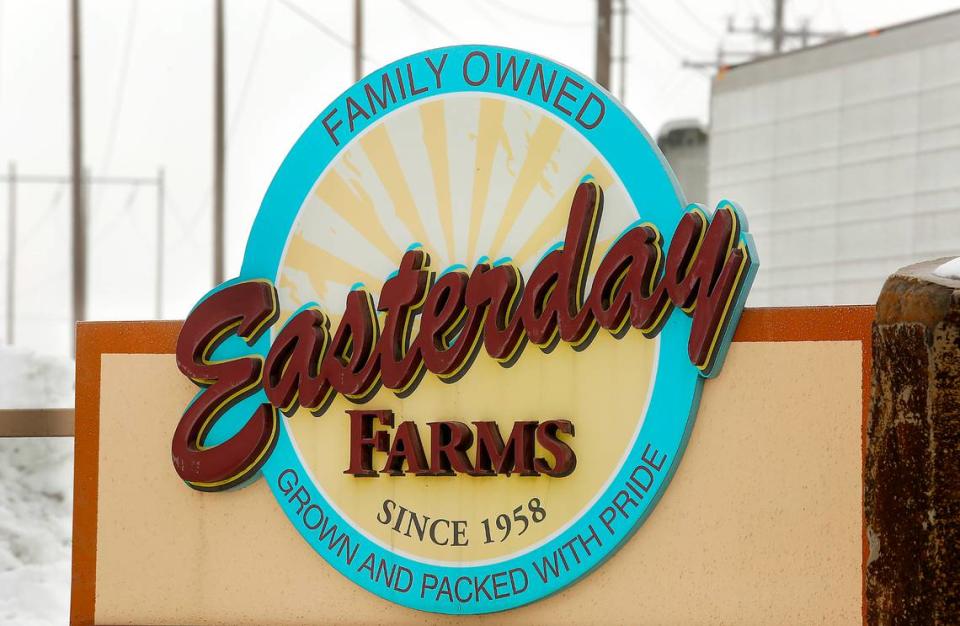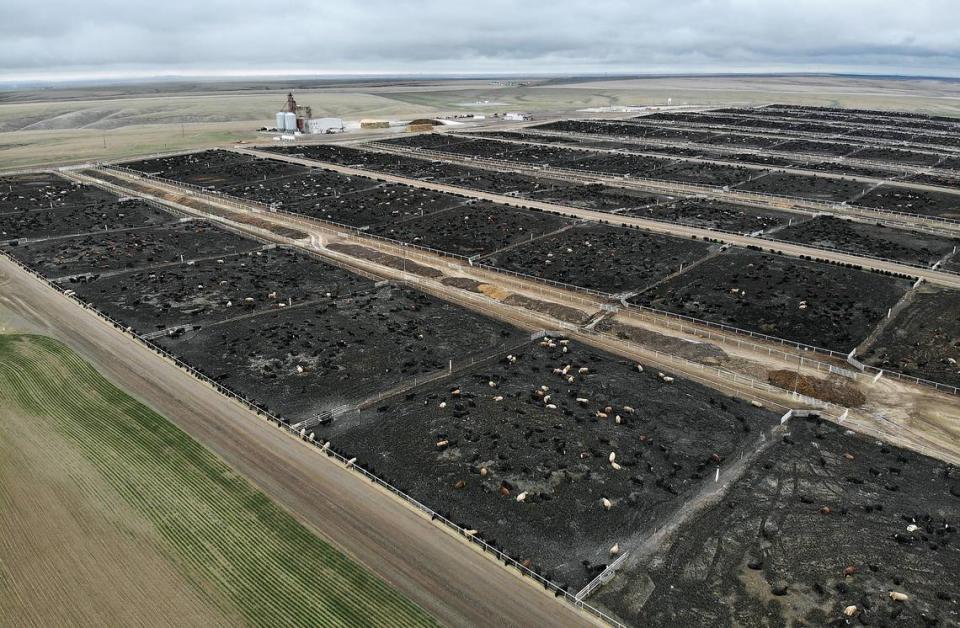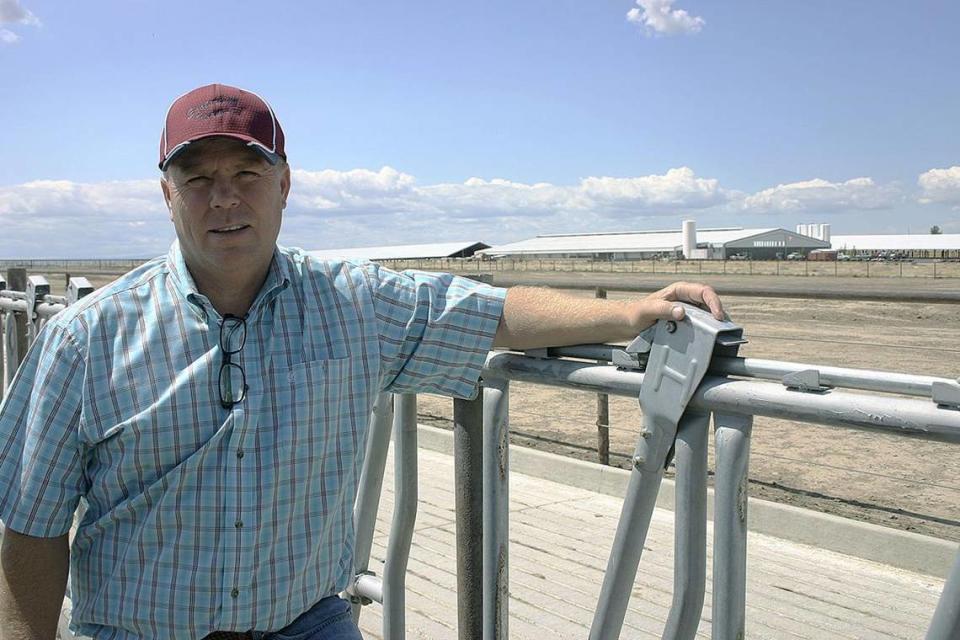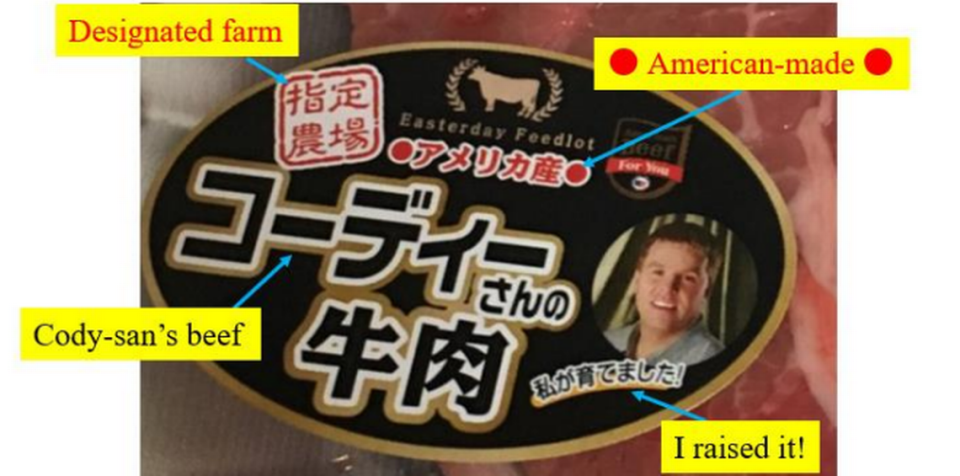Easterday lawsuits against Tyson dismissed. Massive ‘ghost cattle’ fraud comes to a close
Cody Easterday’s legal troubles have more or less come to a close.
Nearly three years after the “ghost cattle” scheme to defraud Tyson was discovered, and a year after Easterday was sentenced to 11 years in federal prison, all of his active court cases have been resolved after a federal judge dismissed the lawsuits filed against Tyson over copyright and antritrust claims.
Judge Stanley Bastian recently dismissed the civil suits with prejudice, meaning they can’t be refiled. The Commodities Future Trading Commission also wrapped up its investigation.
Attorneys for the commission said they accepted the restitution and criminal judgment in the case and issued a $1 million fine in a filing notifying the court both sides had come to an agreement earlier this year to settle the matter.
During the criminal sentencing, Judge Bastian described the fraud that stemmed from a gambling addiction as one of the largest he had ever seen. The scam toppled one of the Northwest’s largest ranching families.
Easterday was ordered to pay $244 million in restitution at his October 2022 sentencing.
He already had paid about $70 million, and Bastian agreed to hear arguments about the restitution at a later date.
With the close of the Tyson lawsuits, all that is left is for Easterday to satisfy the remaining restitution and serve his prison term.

Ghost cattle scheme
Easterday’s legal issues began when he started billing Tyson and another smaller lender, Segale Properties, for cattle that did not exist.
In all, he collected about $250 million for 265,000 cows that were never in the company’s care between 2016 and 2020.
He collected $233 million in payments from Tyson and received a loan for $16 million from Segale Properties.

Lawyers for Tyson said at Easterday’s sentencing that with interest and the cost of lawsuits and the criminal case, they were out nearly $260 million.
Easterday told investigators he was using the money to cover $200 million in gambling losses on the commodities market.
Under Easterday’s agreement with Tyson, the company was supposed to be reimbursed for the cost of care of the cattle.
The fraud was discovered in December 2020, and Easterday met with representatives from Tyson and admitted what he had done. Later, he was charged with one count of wire fraud, eventually pleading guilty in March 2021.
Prosecutors with the U.S. Attorney’s Office described his crime as “massive, brazen and long-term.”
Soon after the criminal filings, the Easterday family businesses filed for bankruptcy and began selling off assets to raise money to pay debtors.
Easterday’s sentencing was delayed for about a year and a half as he worked with attorneys on a bankruptcy settlement for Easterday Farms and Easterday Ranches. A global settlement agreement was reached in July 2022.
That settlement satisfied most of their smaller creditors with a payout of $10.76 million to be divided among 65 businesses.
The only holdout was Rabo Agrifinance, which successfully argued for repayment of $1 million plus interest. The Rabo settlement was finalized in January 2023.
Easterday’s cooperation in the bankruptcy helped earn him a sentence of less than the possible maximum of up to 20 years.

Tyson and others involved in the bankruptcy lawsuit agreed not to seek criminal charges against other members of Easterday’s family due to his cooperation in helping reach a settlement.
Last year, Farmland Reserve Inc. — parent company of Kennewick-based AgriNorthwest, and the investment arm of the Church of Jesus Christ of Latter Day Saints — bought 18,000 acres of agricultural land in the southeast corner of Benton County with a winning bid of $209 million.
The sale included prime Columbia River water rights for 12,000 irrigated acres.
Agri Beef-affiliate Blue Tag Farms was the top bidder at $14 million for more than 600 pieces of equipment at Easterday farms and ranches, the Capital Press reported in September.
And Agri Beef paid $16 million for Easterday’s feedlot in Pasco, according to Capital Press.
Copyright, antitrust lawsuits
Easterday was sentenced in October 2022 and then filed the two recently-dismissed lawsuits against Tyson.
The first was centered on a copyright claim over payments for a brand deal in Japan using Easterday’s name and image. That lawsuit was dismissed at the end of October.

The second was an antitrust lawsuit alleging unfair business practices concerning the reimbursement for care of cattle, which was dismissed at the end of August. That payment structure, instituted in 2016 was a marked change from a previous agreement and left cattle providers shouldering a much larger burden, his lawyers argued.
Easterday is serving his prison sentence at FCI Lompoc in California, a few hours north of Los Angeles.
His attorneys requested Lompoc, because Easterday has more opportunity to participate in “productive activities” and “evidence based recidivism reduction programs.”
They pointed to a farming and livestock program at Lompoc that would be especially suited for him, given his background.
His lawyers said in the filing that these programs would let Easterday earn federal time credits to allow him to transition sooner into a halfway house or home confinement.
Lompoc is in Santa Barbara County, with about 960 prisoners at the Federal Correctional Institute portion of the complex. It is a satellite on the campus of the medium security USP Lompoc, which houses about 2,100 prisoners.

